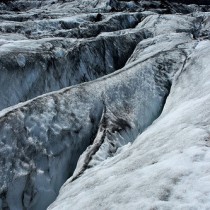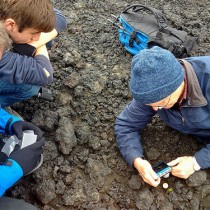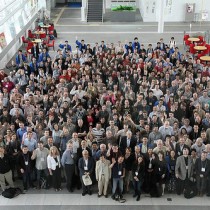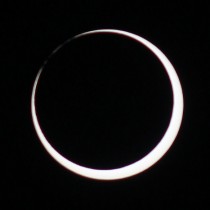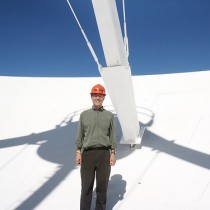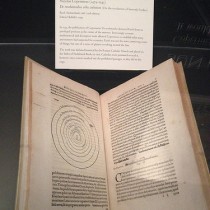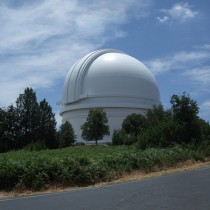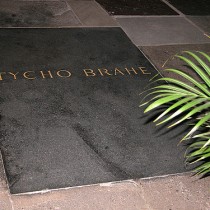The Road to Tanegashima
- By Kevin Boyce
- January 12, 2016
- Comments Off on The Road to Tanegashima
Getting ready to launch Astro-H from Japan Continue Reading →
The Life of a Scientist: Astrobiology in Iceland, Parts III and IV
- By Christina Richey
- December 13, 2012
- Comments Off on The Life of a Scientist: Astrobiology in Iceland, Parts III and IV
This is Parts III and IV of my blog about doing astrobiology in Iceland. Read parts I and II. Part III: Field Work: ATP and the search for life in hostile environments Icelandic horses (with the most fabulous 80s hair) in front of the Brenninsteinsalda Rhyolite Mountains. Photo courtesy of … Continue Reading →
The Life of a Scientist: Astrobiology in Iceland, Parts I and II
- By Christina Richey
- December 7, 2012
- Comments Off on The Life of a Scientist: Astrobiology in Iceland, Parts I and II
The Nordic-NASA Astrobiology Summer School “Water, Ice and the Origin of Life in the Universe,” was held July 1-15 in Iceland. The school was organized by Wolf Geppert, the director of the Stockholm University Astrobiology Center, and Karen Meech, the director of the NASA Astrobiology Institute at the University of … Continue Reading →
Poland’s Rich Scientific History
- By Maggie Masetti
- November 30, 2012
- Comments Off on Poland’s Rich Scientific History
This past summer, I took a trip to Poland, specifically, Warsaw and Krakow. My husband was there for a scientific conference, and I was there as a tourist, but I was amazed at the amount of science and science history there was to be found whilst seeing touristy things. One … Continue Reading →
The Life of a Scientist: Traveling to ACM 2012, Niigata, Japan
- By Christina Richey
- July 12, 2012
- Comments Off on The Life of a Scientist: Traveling to ACM 2012, Niigata, Japan
The 2012 Asteroids, Comets, Meteors (ACM) Conference, was held mid-May in Niigata, Japan. The conference brought together approximately 400 scientists from over 30 countries to present observational, experimental, and theoretical results on small bodies (see the group photo below). I presented my experimental work on metal-silicate dust grain analogs and … Continue Reading →
Ring Around the Moon
- By Maggie Masetti
- July 10, 2012
- Comments Off on Ring Around the Moon
It all started when my friend Craig mentioned that there was an upcoming annular eclipse that would be visible from the US. And that maybe we should go to Portland to visit it. Or better yet, Arizona, where the skies would be much more likely to be clear! Solar eclipses … Continue Reading →
An “X-ray Astronomer” Among Radio Telescopes
- By Koji Mukai
- April 30, 2012
- 2 Comments
To me, an observational astronomer, there is no such thing as X-ray astronomy. What I do is astronomical research on objects that happen to emit X-rays, as well as ultraviolet, visible, and infrared, etc. light. My research interest is not X-rays, but astronomical objects called cataclysmic variables and symbiotic stars … Continue Reading →
[Maggie’s blog] Beautiful Science
- By Maggie Masetti
- March 26, 2012
- 1 Comment
On my recent vacation to Los Angeles, I visited Huntington Gardens. It’s a gorgeous place and in addition to gardens, it has several museums. I was very excited to see their permanent exhibit of old and rare science books. The exhibit is called “Beautiful Science: Ideas that Changed the World” … Continue Reading →
A Visit to Palomar
- By Maggie Masetti
- August 24, 2011
- 4 Comments
The last time I visited an observatory, it was an ancient Chinese one. This time I visited one a little closer to home. When I learned that I was going to be in Southern California (visiting my husband who was there for back-to-back science conferences), I knew I had to … Continue Reading →
Paying Tribute to the Scientists of the 16th & 17th Centuries
- By Koji Mukai
- August 15, 2011
- 1 Comment
We all know that Nicolaus Copernicus revolutionized our view of the universe. Who would you pick as the top scientists who further developed astronomy during the 16th and 17th centuries? I would pick Tycho Brahe, Johannes Kepler, Galileo Galilei, Isaac Newton, and Edmond Halley as my top five. I got … Continue Reading →



